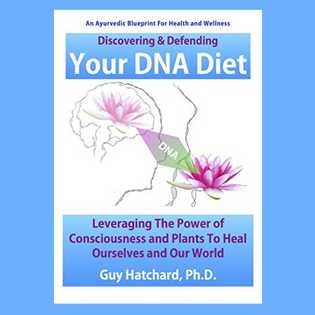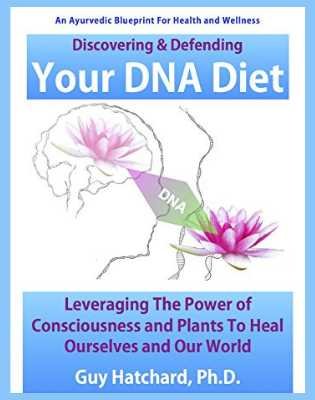We have arrived at the crossroads of our lifetime
There is little doubt in anyone’s mind that we are at a crossroads. New Zealand legislation is in progress to deregulate biotechnology experimentation. If passed, the general public will become guinea pigs in a raft of diverse projects. Unlabelled gene edited foods will fill our plates and affect our gut unannounced.
This article is also available as a PDF to download, print, and share and as an audio version.
The mainstay of our economy—high quality agricultural products—will be downgraded to bargain basement GMO-tainted products subject to overseas consumer suspicion and likely trade barriers. The scope of medical interventions and prescriptions will be broadened to include treatments and drugs with unsustainable costs that pose higher risks to patients with uncertain long term outcomes. This post examines the fundamental problems with biotechnology and suggests causes of known adverse effects.
Incredibly, by seeking to pass the Bill, the government is prejudging the outcome of Phase 2 of the Royal Commission on Covid-19 which is scheduled to address safety issues of novel biotech medical interventions introduced for the first time in New Zealand during the pandemic. Nevertheless, we should examine in detail the claim of the government that the removal of our traditional precautionary approach to medicine and agriculture will somehow benefit the nation and move us forward into a so-called bright technological future.
According to the government, biotech experimentation promises that diseases caused by single gene mutations can be positively ameliorated by CRISPR gene editing, while mRNA vaccine types and other methods of cell modification are believed to offer hope to cancer sufferers. Two weeks ago we published an article lifting the lid on the poor results of such procedures to date entitled “The Big Debate: How Many New Doctors Will NZ Need if the Gene Technology Bill is Passed?“. Nevertheless we have to admit it might be possible for the layman to pass a harsh judgement on anyone who attempts to question or hold up medical progress.
So why are we at the Hatchard Report still so firmly concerned about gene technology? Are we denying an opportunity for people to get well? No.
An article in the UK Guardian last week announced Groundbreaking’ sickle cell disease treatment approved for NHS use in England‘. The NHS has approved treatment of sickle cell anaemia patients with CRISPR treatments developed by Vertex technologies called exa-cel at a projected minimum cost of NZ$3.6 million per patient. The article claimed that “Clinical trials had found one-time gene therapy exa-cel offers a ‘functional cure’ in 96.6% of patients”. There are 15,000 people in the UK suffering from the disease which causes debilitating blockages in the venous blood system known as vaso-occlusive events. So with that astounding rate of reported success, even with the huge price tag, who would want to stop its roll out?
It is always best to refer back to the results of the actual clinical trial to verify the details. They were published by the New England Journal of Medicine in April 2024 under the title “Exagamglogene Autotemcel for Severe Sickle Cell Disease“. In all, 44 patients have received the treatment over a four year period, which is designed to reactivate fetal haemoglobin production by inserting short genetic sequences in the erythroid enhancer region of a patient’s own haematopoietic stem and progenitor cells (HSPCs) using CRISPR gene editing. In the trial’s terms, ‘success’ was strictly limited to meaning that a patient remained free of vaso-occlusive events for any 12 month period following the procedure. The study did not report any assessment of, or changes in the very extensive range of other symptoms commonly associated with sickle cell disease.
The study only reported follow up of 30 out of the 44 patients (2/3 or 68% of the participants). Of these, 29 experienced a period of 12 months free of hospitalisation for vaso-occlusive events in contrast to their previous history of regularly occurring severe episodes leading to a claim of 97% success. However this figure is deceptive, 6 patients did in fact experience severe vaso-occlusive crises after exa-cel infusion. Inexplicably, 4 of these were excluded from the analysis. Their inclusion would have dropped the narrowly defined success rate from 97%, as naively reported by the Guardian, to 84%. All of which leads to the suspicion of a PR promotional tactic touting deceptive headline efficacy percentages, much as happened during the COVID-19 vaccine roll out.
Crucially 42 (95%) of the participants experienced severe adverse events at grades 3 or 4 following the infusion of exa-cel. A grade 4 adverse medical event is a life-threatening or disabling event that requires immediate medical intervention. The most common of these experienced by exa-cel patients were:
Stomatitis (in 55% of the patients) which is inflammation of the mouth’s mucous membranes causing painful sores that make it difficult to eat, drink, or swallow,
Febrile Neutropenia (in 48%) which is a medical condition where a patient experiences a fever alongside a significantly low count of neutrophils, a type of white blood cell crucial for fighting infection. This is considered a medical emergency requiring prompt diagnosis and treatment.
Decreased Platelet Count (in 48%), also known as thrombocytopenia, which can increase the risk of bleeding, especially from the mouth, nose, and gastrointestinal tract. In severe cases, it can be life-threatening.
The other severe adverse events experienced by patients included anaemia, abdominal pain, lymphocyte count decrease, gallstones, pruritus (skin itch), constipation, headache, nausea, chest pain, pneumonia, arthralgia, deep vein thrombosis, loss of appetite, weight loss, and back pain. In 20 patients these events were judged especially serious, but incredibly the authors concluded that none of these could be positively related to exa-cel infusion. At least one patient died partly as a result of the busulfan chemotherapy which is a required adjunct to exa-cel treatment.
There are an estimated 15,000 individuals in the UK suffering from sickle cell disease. Due to the cost of the procedure, the NHS will only be able to fund 50 patients a year, less than the 300 new babies born with the condition each year. Given the huge cost, the very low bar set for so-called success, the absence of long term evaluation and the high rate of adverse effects, it is virtually impossible to justify the expense or the risks. Especially when the NHS is faced with a funding crisis, hospital overcrowding, long delays in specialist treatment and massive ED wait times. See for example this UK Telegraph article ‘Corridor care used to be seen as unacceptable – now it’s the norm’. Much the same as the situation here in New Zealand where FSA (first specialist appointment) wait times for example are still rising steadily despite government efforts, whilst ED nightmare waits have become ordinary.
Our conclusion: the money might be more wisely spent elsewhere in the health service to the benefit of a much larger number of people.
You may say this is just the beginning. Every new technology has its teething issues. Shouldn’t we be listening to the Trumpian bombast of the billionaire tech moguls or the futuristic internet prophets calling us to embrace our transhuman AI biotech future. To this we reply ‘look back in anger’ on the five wasted years of the pandemic with its economic mayhem, social isolation, and excess deaths. Just remember that ‘all the king’s horses and all the king’s men couldn’t put humpty together again’. COVID-19 with its biotech origins could not be contained, prevented, recalled or remediated. It spread without limit and has become an enduring part of the ill health landscape.
This is still going on around the world and here in New Zealand today. An article in Newsroom entitled “Cardiac and mental illnesses fuel surging benefits bill reports Jobseeker beneficiary numbers continue to rise to record levels in spite of a government overhaul aimed at shifting more people into employment. Numbers claiming benefits due to disability or ill health rose by 16% in 2024, now costing double that in pre-pandemic 2019. The article reported:
“Psychological or psychiatric conditions are the most common issue among those in the ‘health condition or disability’ bracket, with 46,920 claiming benefits last year for issues like depression and anxiety. The biggest five-year uptick is in cardiovascular disorders, which have risen 54.9 percent since December 2019 with 4194 claimants off work due to heart and blood vessel problems last year. The largest representative age group of health-related benefit claimants in 2024 was 25-39-year-olds, but the 18-24 year-old group had the largest five-year proportional increase in numbers, at 58 percent.”
Why? The answer brings us to our main reason for grave concern about biotechnology safety. This relates to fundamental principles, some of which we discussed in our article at GLOBE last week entitled “The Future of New Zealand is Written in the History of Biotech Mutation“. We can state our concerns succinctly:
Gene editing by definition crosses the cell membrane and redefines genetic processes known to be fundamental to our physical health and mental well being.
A study published in November 2024 entitled “The Role of Cells in Encoding and Storing Information: A Narrative Review of Cellular Memory” concludes
“Multiple studies have demonstrated that memories can be encoded and stored in cells. Evidence suggests that these memories can then be transferred between individuals through organ transplantation….but there has been a noticeable lack of research focused on cellular memory, and more rigorous investigations are needed to uncover how cells participate in memory and the extent to which these processes influence human behaviour and cognition.”
‘Lack of research’ is a gross understatement, more properly, the role of awareness in biotechnology has been deliberately excluded from study. What does this mean for us? Memory plays a crucial role in forming our thoughts and behaviour. The outcomes of previous actions and experiences imprint themselves in our cells as memories. When faced with similar circumstances they float to the surface of awareness and determine our responses. In this way past experiences control present choices and determine the future.
Memories are considered by everyone to be a private space. It is almost unthinkable that routine medical procedures being urged for all might disrupt them. In reality, our consciousness, our state of mind is intimately entwined at every level with our internal cellular structure and external cellular networks. Genetic interventions, which cross the cell membrane, invade our personal space in ways that are not understood or acknowledged.
At its most fundamental level, awareness has a 3 in 1 structure. Knower, knowing and known are linked together. These emerge from the totality of awareness, our BEING. The holistic quality of being awake necessarily implies an observer, process of observation and object of observation—the 3 in 1 structure of awareness. It is no accident that the cell also has a three in one structure. The WHOLE cell comprises the nucleus, the cytoplasm and the membrane. The DNA in the nucleus is a silent observer of the complex processes in cytoplasm which connect to the protective membrane, the gateway to the extracellular world. Awareness and cellular structure are two aspects of the same fundamental 3 in 1 reality.
The determining factor in this arrangement is the HOLISTIC nature of BEING. Being or awareness sits at the fulcrum point of life. BEING is able to express itself through the precise structure of the cell. The cell has a history just as the whole organism has a history. This history is the personal record of BEING expressing itself in an individual life. It includes the cultural and genetic history of the family, referred to as whakapapa in Maori culture. This is the golden pathway of individual evolution created and guided by the universal BEING.
The experience of deep meditation or ecstatic spiritual insight reveals that BEING is a field of BLISS. It is truth, intelligence and bliss in a unified field of pure awareness. It is the deep field of universal silence which quietly guides and nurtures individual life. This is the truth of Michelangelo’s depiction on the Sistine Chapel ceiling of God imparting the spark of life to Adam. The Creator, having created, enters into life. The Kingdom of Heaven is always within. All this insight, experience and expression is quietly and precisely supported and enabled by the physiological and genetic structure of individual human life.
Biotechnology experimentation and gene editing is putting someone’s else’s creation into the midst of our path of individual evolution. Not only can it disrupt memory and thereby alter our future thoughts and actions, as is known to happen following organ transplants, but it can disrupt our capacity to connect with the source of life itself. It can disconnect the individual from the flow of the bliss of life.
People these days are often reluctant to open up about their spiritual and cultural experiences and insights. If you feel that is outside your approach to life, just evaluate your personal experiences of the effect of gene technology during pandemic years. If these were limited or unclear, refer to the hard facts of scientific findings. All these factors point in the same concerning direction.
Considering that 90% of our eligible population received an mRNA vaccine which repurposed internal cellular genetic functions, is it any wonder that 46,920 working age people in New Zealand are unable to work because of “psychological or psychiatric conditions” including depression and anxiety as the latest Ministry of Social Development’s figures show?
This view is confirmed by a 2024 study of 2 million health records entitled “Psychiatric adverse events following COVID-19 vaccination: a population-based cohort study in Seoul, South Korea“. It found: “The cumulative incidence of depression, anxiety, dissociative, stress-related, and somatoform disorders, sleep disorders, and sexual disorders at three months following COVID-19 vaccination were higher in the vaccination group than the no vaccination group.” and concluded: “special precautions are necessary for administering additional COVID-19 vaccinations to populations vulnerable to psychiatric AEs.” which should include, according to the authoritative Harvard Medical School, well over half of the world’s population who will suffer mental illness during their lifetime.
Dr Luke Bradford, medical director at the Royal New Zealand College of General Practitioners blamed the astounding sudden rise in mental illness on ‘societal behaviours’ including unemployment. Since society is composed of individual behaviours, this does sound rather like a puzzling misleading circular argument devoid of any explanatory power.
An even greater puzzle is the response to Newsroom by Louise Upston, Social Development and Employment Minister, who said reforms made to the benefit system in August last year are “delivering results”. I suppose she just forgot to mention these were the wrong kind of results. It does make you wonder whether some government ministers would be better off opting for a disability benefit themselves.
The lessons of this article are clear. At one end of gene technology disruption lies the introduction of gene altered and synthetic foods which cut off the supply of nature’s intelligence to our digestive system. The Gene Technology Bill is proposing to remove all regulation, precautionary testing and labelling from this sector. We won’t know what we are eating or its potential effects. At the other end even more powerful effects of genetic medical interventions will disrupt our health and well being. Who wants to buy into this nightmare?
In the continuing vein of government disinformation and double speak, there is an all court press in progress to suppress public discussion of the Gene Technology Bill. Facebook and Instagram posts on the subject are being throttled and censored. Political representatives are pouring scorn on concerns, describing them wrongly as “outdated fear mongering”. No corroborating evidence offered. If you want to be sure to receive up to date information subscribe to the Hatchard Report. Unlike the government, we publish scientific references and engage in open public debate. We are not afraid to ask questions.
The Gene Technology Bill will completely exempt most gene altered products from any kind of scrutiny, regulation or labelling. We are at a crossroads where decisions made will affect us all for generations. Find out more by viewing our YouTube video The Gene Technology Bill. What Kiwis Need To Know and then make a submission to the Health Select Committee by February 17th. There are many reasons to reject the Gene Technology Bill. We have published suggestions for a submission template. Write to your MP. They need to be thoroughly quizzed on this egregious Bill.
We do not live in a country where people are willing to let others take away their food choices, their rights, their beliefs and increase exposure to serious long term environmental and health risks. To protect this, we need to stand up and be heard.






